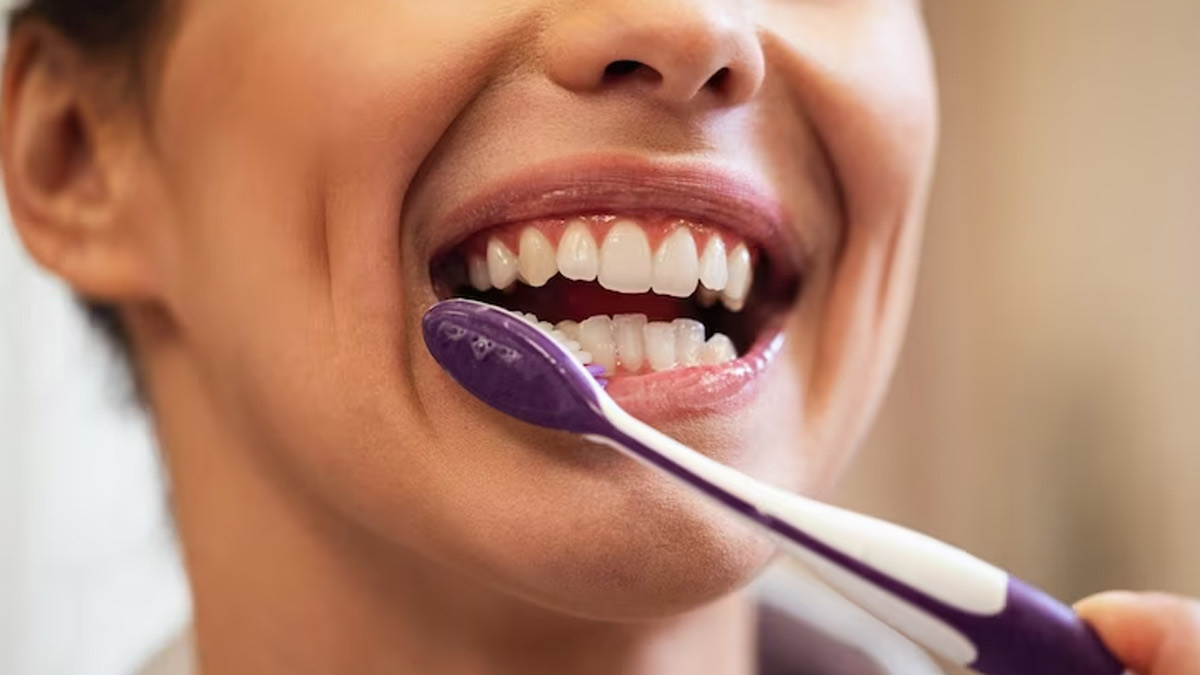
It is a no-brainer that proper brushing is essential for having good oral health and keeping plaque-causing bacteria at bay. But just like not brushing at all is harmful, brushing too hard is also detrimental. When you do not brush your teeth enough, you will not be able to get rid of food debris and plaque-causing bacteria. But when you brush too hard, a common habit of many people, you are not adding anything to your oral health but harming your teeth and gums. Brushing too hard for long periods of time can lead to serious problems like enamel erosion, leading to teeth sensitivity and decay in the long run. So, identifying if you are brushing hard becomes important. Here are some signs that let you identify if you are brushing your teeth hard.
Table of Content:-

Frayed Toothbrush
Look at your toothbrush and see if it is damaged or fine. It is obvious that tooth bristles get worn out over time due to usage. Your new toothbrush will have rounded bristles that are kinder to your teeth when you first acquire it. But watch out if your toothbrush is worn out way before its lifespan. If yes, it is probably because you are brushing too aggressively.

Also Read: Is Apple Cider Vinegar Causing Damage To Your Teeth? Expert Explains
Tooth Sensitivity
Enamel erosion is one of the common issues resulting from brushing too hard. Just like using a hard bristled brush to wear the enamel, hard brushing can also wear it off, exposing dentin. Dentin is more sensitive to hot and cold stimuli than enamel. Now, when you drink anything hot or cold, you feel sensitivity that can range from mild to extreme, depending upon the damage and exposure of the dentin.
Gum Damage

Another sign that can tell you are brushing hard is gum damage. Usually, gum damage is the result of bacterial attacks, which can lead to gum diseases like gingivitis and receding gums in the long term. But do you know your gums can also recede as a result of hard brushing? This can happen when you brush too hard. Instead of brushing away germs, you may be hurting your gum tissues and pulling them away by the aggressive brushing action. This practice may expose the roots of your tooth structure and lead to issues like sensitivity and gum disease in the long run.
Also Read: Can Braces Cause Teeth Staining, Dentist Answers
Tooth Decay

Tooth decay is another sign that tells you are brushing harder than needed. As mentioned, hard brushing can lead to enamel damage. When there is no protective layer on your teeth, they become more prone to cavities. For people who brush too hard, moon-shaped cavities can be seen at the root surface or gum line.
Dull Teeth
Since you are brushing too hard, degrading the enamel, it is likely that your teeth may look yellow and your smile diminished. While it is true that the colour of your teeth is not perfectly white, hard brushing makes it more off-white. This is because your dentin is exposed, which gives your teeth a yellowish tint.
Image Credits: freepik
Also watch this video
How we keep this article up to date:
We work with experts and keep a close eye on the latest in health and wellness. Whenever there is a new research or helpful information, we update our articles with accurate and useful advice.
Current Version
